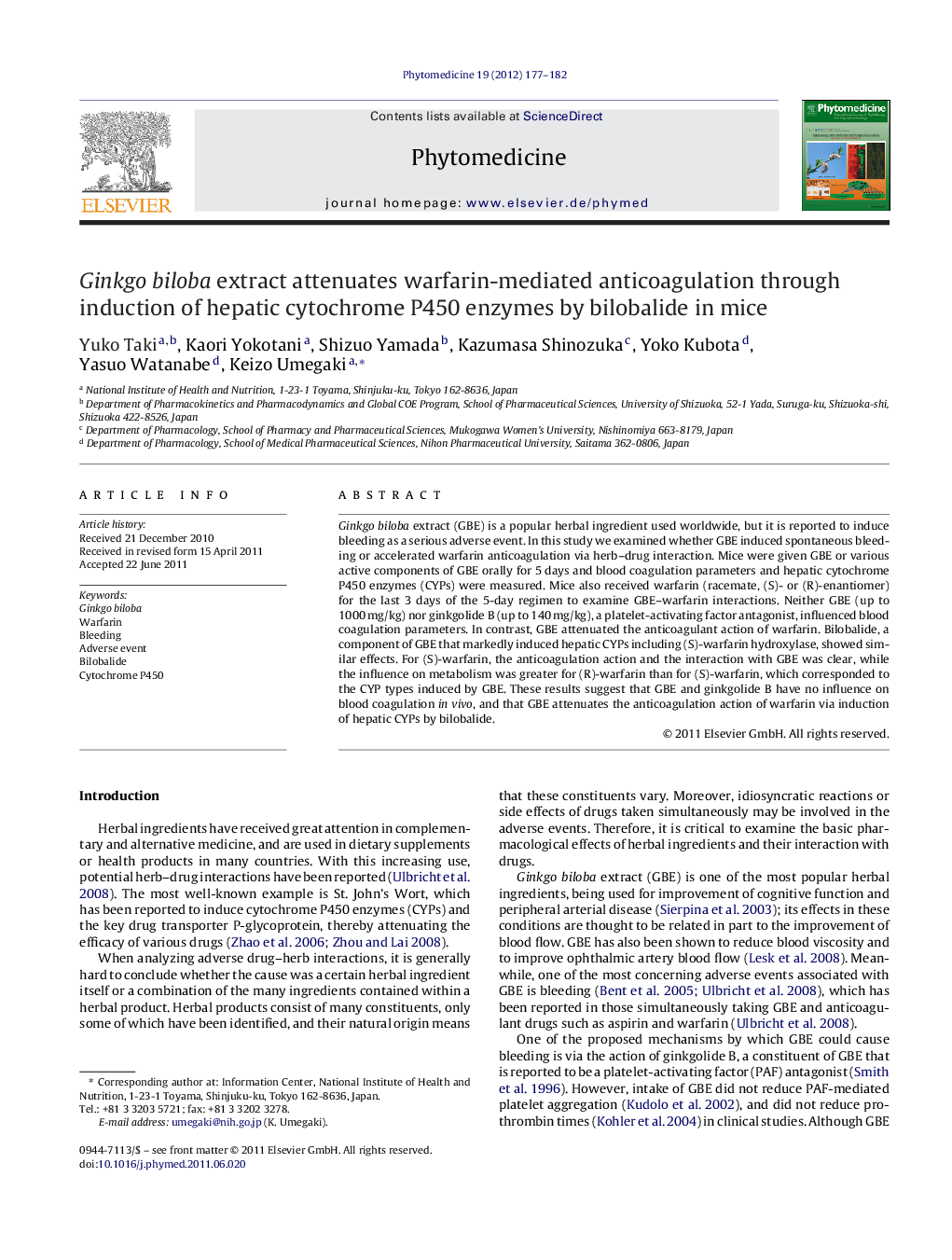| Article ID | Journal | Published Year | Pages | File Type |
|---|---|---|---|---|
| 2496867 | Phytomedicine | 2012 | 6 Pages |
Ginkgo biloba extract (GBE) is a popular herbal ingredient used worldwide, but it is reported to induce bleeding as a serious adverse event. In this study we examined whether GBE induced spontaneous bleeding or accelerated warfarin anticoagulation via herb–drug interaction. Mice were given GBE or various active components of GBE orally for 5 days and blood coagulation parameters and hepatic cytochrome P450 enzymes (CYPs) were measured. Mice also received warfarin (racemate, (S)- or (R)-enantiomer) for the last 3 days of the 5-day regimen to examine GBE–warfarin interactions. Neither GBE (up to 1000 mg/kg) nor ginkgolide B (up to 140 mg/kg), a platelet-activating factor antagonist, influenced blood coagulation parameters. In contrast, GBE attenuated the anticoagulant action of warfarin. Bilobalide, a component of GBE that markedly induced hepatic CYPs including (S)-warfarin hydroxylase, showed similar effects. For (S)-warfarin, the anticoagulation action and the interaction with GBE was clear, while the influence on metabolism was greater for (R)-warfarin than for (S)-warfarin, which corresponded to the CYP types induced by GBE. These results suggest that GBE and ginkgolide B have no influence on blood coagulation in vivo, and that GBE attenuates the anticoagulation action of warfarin via induction of hepatic CYPs by bilobalide.
